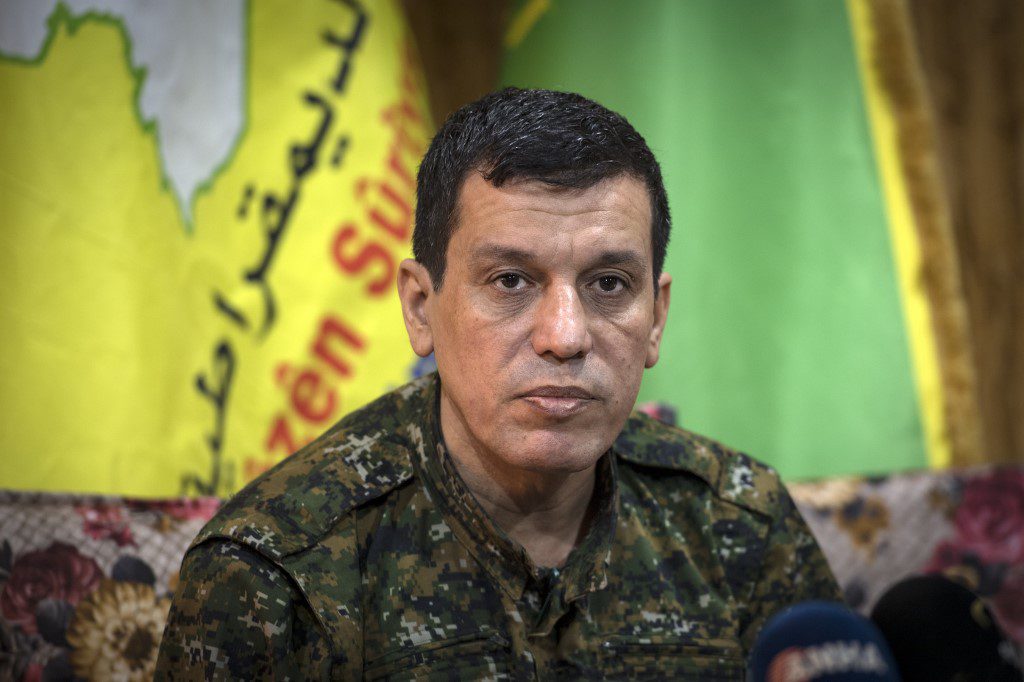Global Courant 2023-04-19 13:17:26
The United States dodged a bullet this month, when Turkey failed to assassinate one of Washington’s key allies in its fight against the Islamic State (ISIS). Had the Turkish drone hit its target – Mazloum Abdihead of the Syrian Democratic Forces (SDF) – three US servicemen escorting Abdi are believed to have died with him, sparking one of the most dangerous crises in Turkish-American relations in modern times.
The Turks missed, perhaps on purpose. But even if Turkish President Recep Tayyip Erdogan’s aim was to deliver a message by deliberately shooting wide, the damage has been done. Such a brutal attack could turn the already frayed US-Turkey relations into a full-blown diplomatic tangle with incalculable consequences for the North Atlantic Treaty Organization.
This is not the first time Americans have stood in the line of Turkish fire. In November 2022, Turkish bombs targeting SDF positions just fell 130 yards from fellow-placed Americans. Again, the American soldiers were unharmed.
It is not hard to imagine how the US Congress would react if Americans were killed in both attacks.
Turkey is already out of favor on Capitol Hill for several reasons, including the government’s growing authoritarianism, its behavior in Syria and the Aegean, its veto over Sweden’s NATO membership, and its purchase of Russian S-400 anti-aircraft missile systems (which would could endanger the US Army’s F-35s).
Congress has condemned the Joe Biden administration’s reluctance to criticize Turkey. Dead soldiers would have forced the government.
So why would Erdogan perform such a risky maneuver?
The obvious answer is political. Erdogan is running for re-election next month, and as a populist authoritarian who has transformed the country into his own private property – most state and public institutions have been castrated and brought under his control – he cannot afford to lose.
The attack on Abdi and US personnel shows how desperate Erdogan is. If he had succeeded he would have taken it as a victory and used it to propel him across the finish line.
Anti-Kurdish obsession
Erdogan has been a fierce critic of Washington’s partnership with the Kurds in northern Syria, accusing them of being terrorists. Turkey has a serious domestic Kurdish problem and has faced an insurgency led by the PKK, the Kurdistan Workers’ Party, and peaceful domestic Kurdish political opposition.
The Syrian Kurds owe much of their military training to the PKK, but there is no evidence that they have ever been involved in any activity within Turkey or against the Turkish regime. Nevertheless, Erdogan has sent his army into northern Syria, expelled and occupied parts of Kurdish territory, and relentless drone campaign against Washington’s ally.
For the time being, the US has mainly chosen to play down Turkish actions instead of pushing back.
Yet a constant drumbeat of disinformation from the Turkish government has convinced the Turkish public that it faces an imminent threat – not only from the Kurds but also from the US.
While Turkey is genuinely concerned that the Kurds in Syria would have an autonomous region – the autonomous regional government of Kurdistan in Iraq finally emerged after Washington intervened in that conflict – suppressing Kurdish demands at home nevertheless serves Erdogan’s interests.
As US Secretary of State Antony Blinken admitted last month, Turkey has proved “a defiant ally”, as the timing of Erdogan’s risky behavior demonstrates.
The recent turnaround follows two events that provided opportunities for Turkey to ease the heat.
The first was Washington’s public appeal for Ankara not to intervene in Syria ahead of the May 14 Turkish elections. Senior US military officials, including the Chairman of the Joint Chiefs of Staff, General Mark Milley, have visited Northern Syriasend a clear signal to Turkey.
The second was the devastating earthquake of February 6 that killed more than 50,000 people in Turkey alone. Turkey’s economy, already reeling from high inflation and balance of payments problems, urgently needs external financing and support to manage reconstruction. The US is well positioned to help, but killing Americans is not the way to get it.
The failed attack on Abdi does not alter the fact that Erdogan may have already jeopardized US earthquake relief. President Joe Biden has deliberately avoided confronting Erdogan over the drone strike; by keeping him at bay, Biden has emphatically refused to invite him to the White House, limiting exchanges to sidebar meetings at international summits.
In a clear rebuke of Erdogan’s strongman tactics, Turkey (together with Hungary) was not invited to the recent White House democracy summit. Yet Erdogan does not seem deterred.
Congress could be inclined to push Biden to take a harder line. However, it is wise to wait until after the elections. There is no point in giving Erdogan ammunition to score points at home.
Still, Erdogan needs to be made clear – privately and subtly in public – that he must avoid dangerous gambling. To that end, Washington should develop a coherent policy for the day after the election, especially if Erdogan wins.
For too long, US policy toward Turkey has conceded to Erdogan. Faced with an economic crisis at home, a victorious Erdogan will quickly become a needy ally. It’s best to prepare him now for what he needs to do to get that support.
This article is provided by Syndication Bureauon which the copyright is based.
Similar:
Loading…








